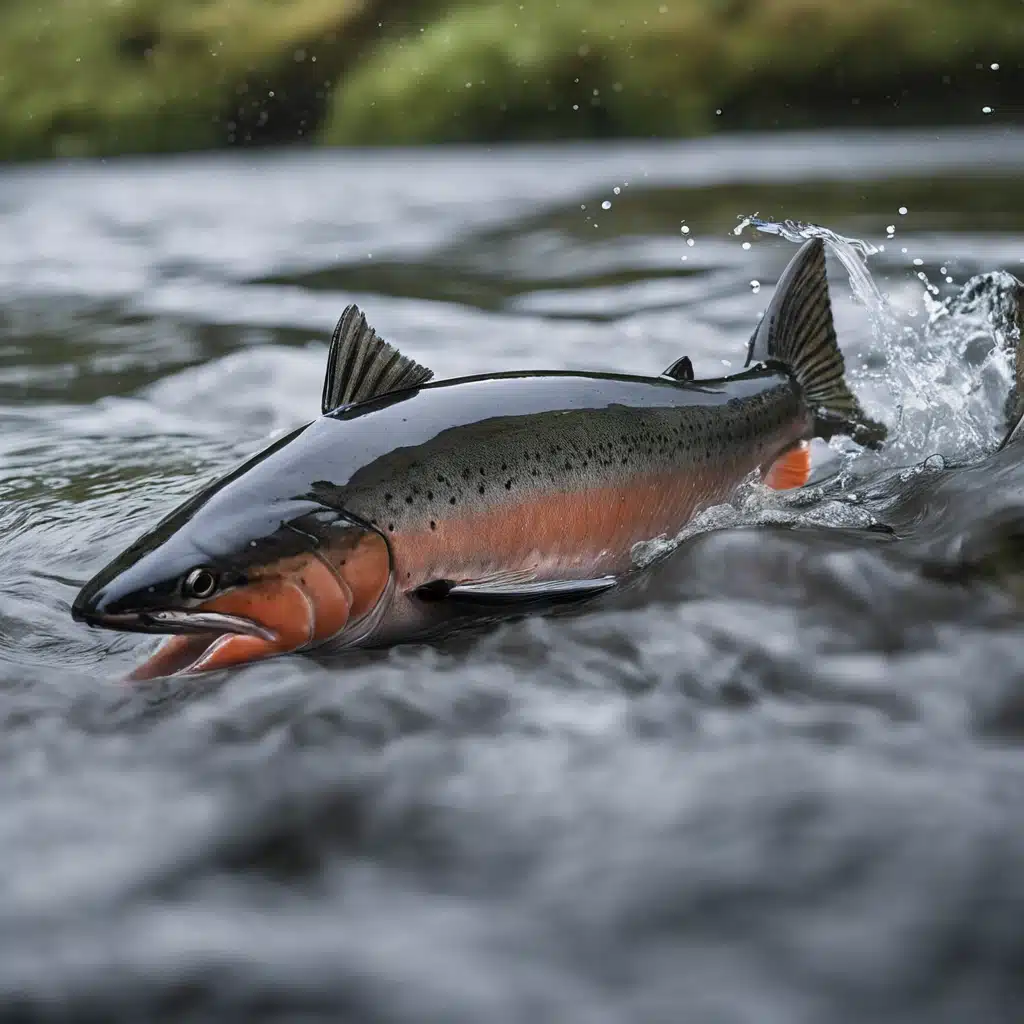Salmon Fishing Lures
Salmon: A prized catch in rivers and open ocean, Salmon require specific techniques like trolling or fly fishing. Timing and location are crucial, depending on the species.
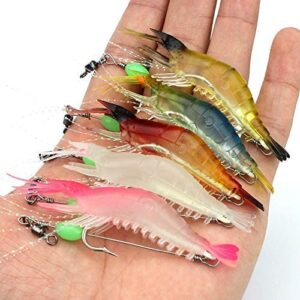
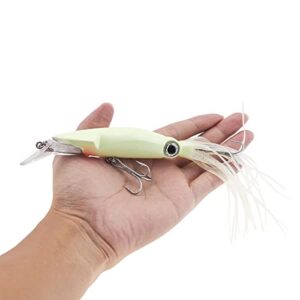
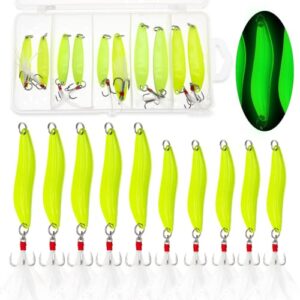
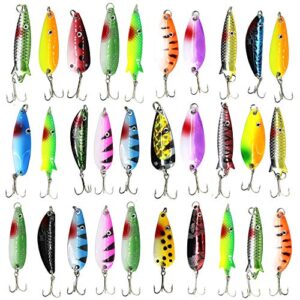
Review: Mepp’s CK Salmon Kit – The Ultimate Lure Assortment
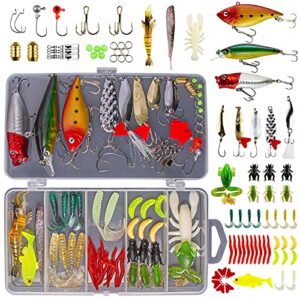
Ultimate Fishing Lures Kit: A Complete Tackle Box Review
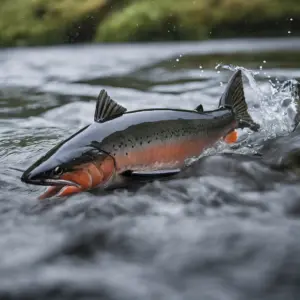
Salmon Fishing Lures
Common Lures for Salmon fish
Catching Salmon, whether in freshwater rivers during their spawning runs or in the open ocean, requires a variety of lures that mimic their natural prey. Here are some common lures used to catch Salmon:
Spoons: Spoons are versatile lures for Salmon fishing, effective in both freshwater and saltwater. Their wobbling action and reflective surface mimic small baitfish, triggering strikes from Salmon.
Spinners: Inline spinners, with their rotating blade, create vibration and flash that can attract Salmon. They are especially effective in rivers, mimicking the movement of small fish.
Plugs: Plugs or crankbaits can be very effective for Salmon, particularly when trolling in saltwater or large freshwater systems. Their built-in action mimics a swimming baitfish.
Jigs: Jigs can be used effectively for Salmon, especially in river environments. They can be bounced along the bottom in a technique known as jigging, appealing to the Salmon’s instinct to attack prey near the riverbed.
Fly Lures: For fly fishing enthusiasts, various fly patterns are effective for Salmon. These include streamers that mimic small fish, nymphs that resemble aquatic insects, and surface flies for topwater action.
Soft Plastics: Soft plastic baits, including swimbaits and grub-tailed jigs, can be rigged to mimic a wide range of Salmon prey, from small fish to squid, and are effective in both casting and trolling applications.
Cut Bait: While not a lure in the traditional sense, cut bait (pieces of fish) rigged on hooks or within a lure setup can be highly effective for Salmon, especially when trolling. The scent and natural appearance of the bait can be irresistible to Salmon.
Squid Lures: Imitation squid lures, often used in saltwater trolling setups, can be effective for certain species of ocean-going Salmon, mimicking one of their natural prey items.
When fishing for Salmon, the choice of lure can depend heavily on the species of Salmon, the environment you’re fishing in (freshwater rivers vs. saltwater), and the time of year. It’s also important to consider the local regulations and the conservation status of the Salmon populations in the area.
Adjusting your technique to match the Salmon’s feeding behavior, such as fishing deeper during midday when Salmon are less likely to feed at the surface, can increase your chances of a successful catch.

